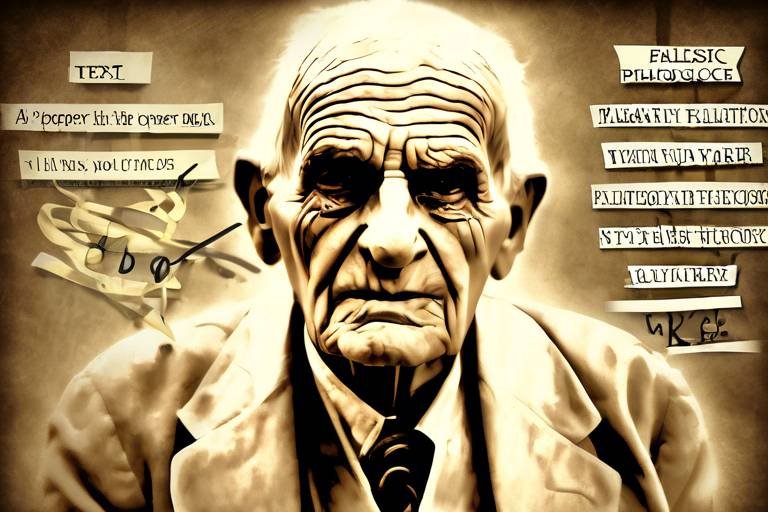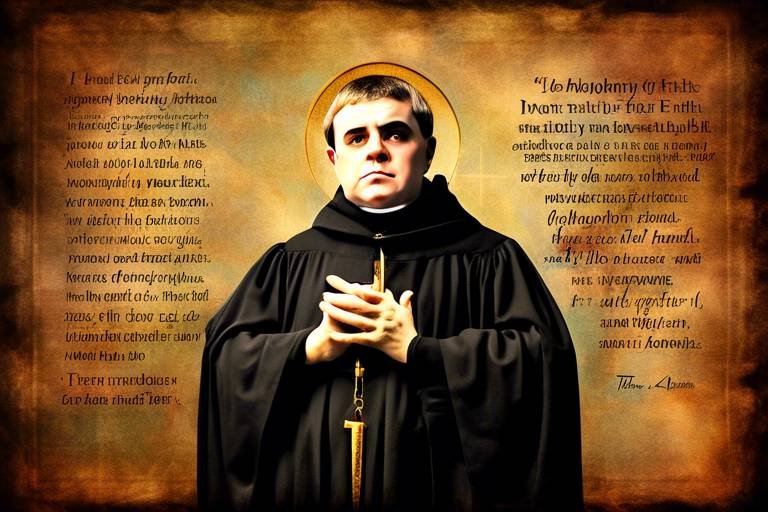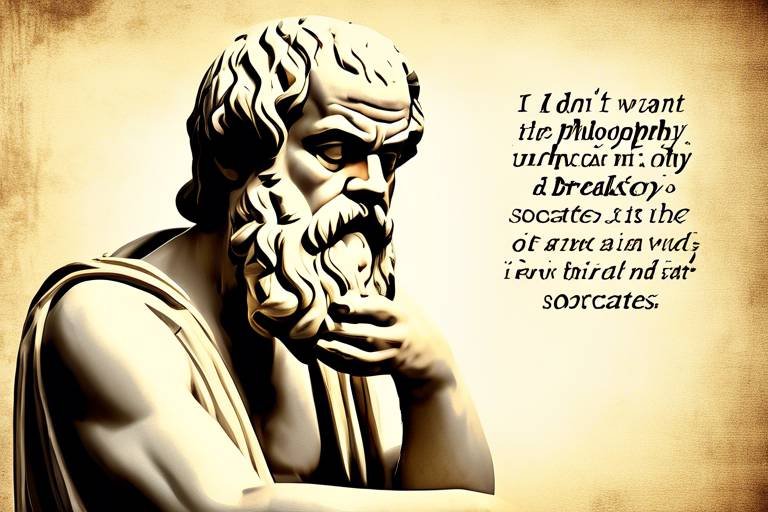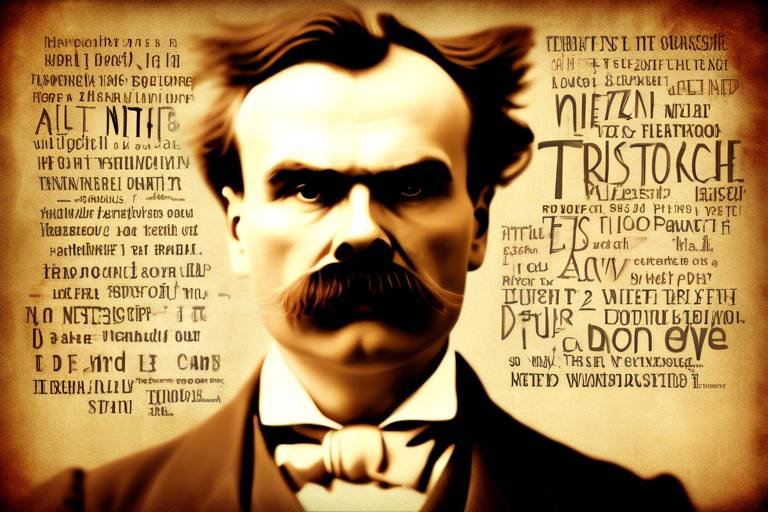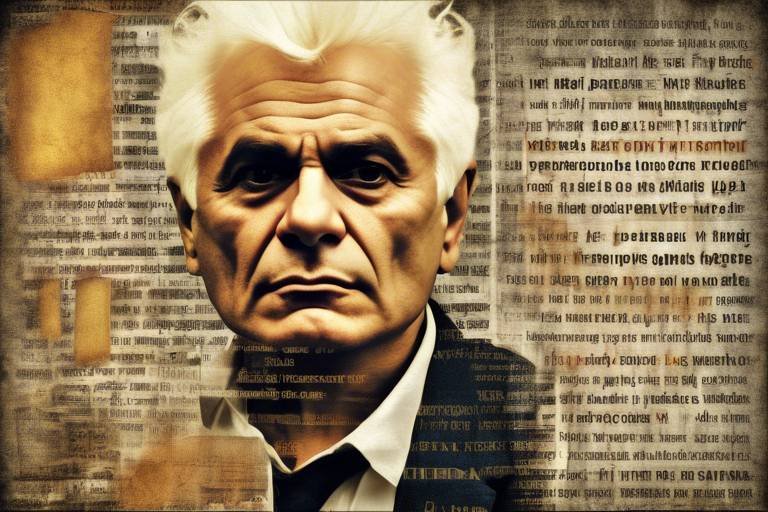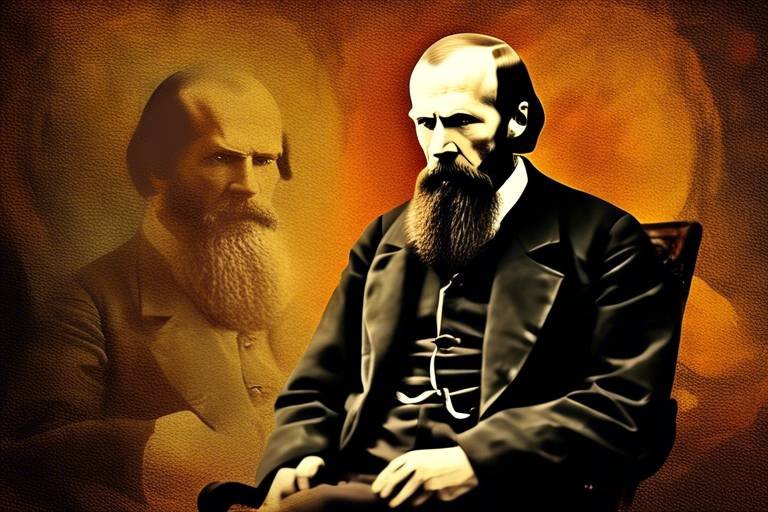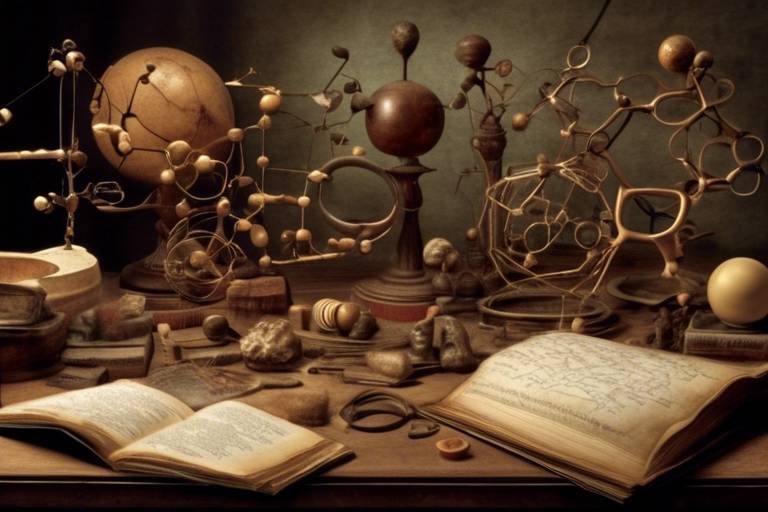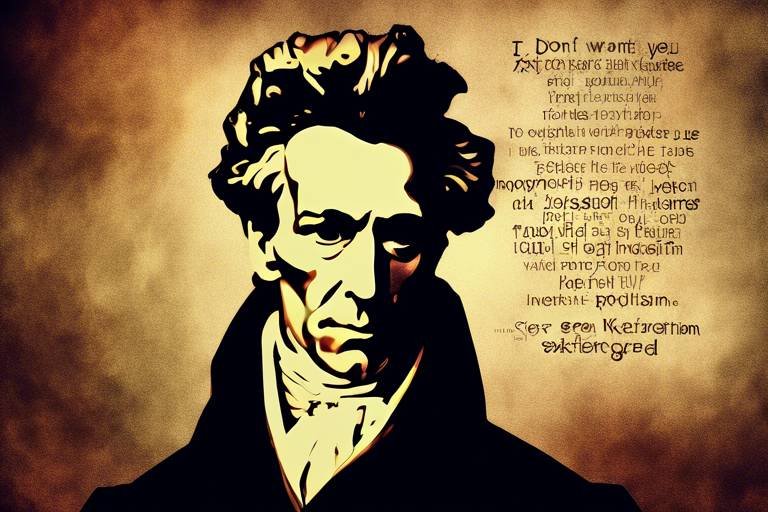How Jean-Jacques Rousseau’s Philosophy Influenced the French Revolution
Jean-Jacques Rousseau, a name that resonates through the corridors of political thought, has left an indelible mark on the landscape of revolutionary ideology. His ideas were not merely abstract concepts; they were the fuel that ignited the flames of the French Revolution. At the heart of Rousseau's philosophy lies a profound understanding of human nature, society, and governance. His key concepts, such as the social contract, general will, and individual freedom, provided a framework that revolutionary thinkers utilized to challenge the status quo and envision a new social order. This article delves into how Rousseau's revolutionary ideas reshaped France’s political landscape and inspired a movement that sought to redefine liberty, equality, and fraternity.
Rousseau's concept of the social contract is a cornerstone of modern political philosophy. In his seminal work, he argued that legitimate political authority arises from an agreement between the governed and the government. This idea was revolutionary in itself, as it challenged the traditional notion of divine right and monarchal rule. Rousseau posited that individuals collectively surrender some of their freedoms to the state in exchange for protection and the maintenance of social order. This mutual agreement laid the groundwork for revolutionary ideology, as it emphasized that the power of the state is derived from the consent of the governed. The very idea that people could come together to form a government based on shared interests was radical and became a rallying cry for those seeking change during the tumultuous times of the French Revolution.
Central to Rousseau's philosophy is the concept of the general will. This idea advocates for the collective interest of the community, placing it above individual desires. Rousseau believed that true freedom is found in obedience to the general will, which represents the common good. This notion inspired revolutionary leaders to prioritize the welfare of the community over personal ambitions. It was a call to unity, urging citizens to look beyond their individual needs and work towards a shared vision of society.
Rousseau's definition of the general will is pivotal for understanding his influence on revolutionary thought. He argued that the general will is not simply the sum of individual preferences but rather a collective decision that reflects the common interest. This idea encouraged revolutionary thinkers to envision a society where citizens actively participate in governance, fostering a sense of belonging and responsibility. The general will became a guiding principle for those who sought to establish a republic based on equality and justice.
The implications of the general will for democracy are profound. Rousseau's philosophy encourages the belief that legitimate authority arises from the people’s collective will rather than from monarchs or tyrants. This was a radical departure from the hierarchical structures of the time, promoting the idea that sovereignty lies with the populace. The revolutionary leaders, inspired by Rousseau, sought to create a government that was accountable to the people, emphasizing democratic principles and the importance of civic engagement.
However, while Rousseau's general will promotes unity, it also presents challenges. Discerning the true collective interest can lead to conflicts, as differing opinions within the community may clash. The potential for majority tyranny arises, where the desires of the majority override the rights of the minority. This paradox highlights the complexities of implementing Rousseau's ideas in a practical political context, raising questions about how to balance the general will with individual rights.
Key figures of the French Revolution, such as Maximilien Robespierre, drew heavily from Rousseau's philosophy. Robespierre, known for his radical stance, used Rousseau's ideas to justify the drastic changes sweeping through France. He believed that the revolution was not just about overthrowing the monarchy but also about establishing a republic that embodied the general will. Rousseau's influence can be seen in the fervent speeches and policies that sought to create a new social order, where the principles of liberty and equality were paramount.
Rousseau's emphasis on individual freedom and autonomy resonated deeply with revolutionaries. His belief in the right to self-determination inspired a generation to reject oppressive systems and fight for their liberties. The revolutionaries viewed Rousseau’s ideas as a validation of their struggle against tyranny, advocating for civil rights and personal liberties that had long been suppressed under monarchical rule. The notion that individuals should have the freedom to shape their destinies became a powerful motivator for change.
Rousseau's perspective on freedom highlights the importance of personal liberty. He argued that true freedom is not merely the absence of restraint but the ability to act according to one’s own will while respecting the rights of others. This idea galvanized revolutionaries to fight against tyranny and advocate for civil rights during the revolutionary period. The desire for freedom became synonymous with the revolutionary cause, driving the movement towards a more equitable society.
Yet, the challenge of balancing individual freedom with social order was a critical issue during the revolution. Rousseau's ongoing influence on the discourse surrounding liberty and governance prompted intense debates about how to maintain order while ensuring that individual rights were protected. As the revolution progressed, the struggle to find this balance became increasingly complex, reflecting the dynamic nature of Rousseau's ideas in practice.
- What is the social contract according to Rousseau?
Rousseau's social contract is an agreement among individuals to form a collective society, where they surrender some freedoms for the protection and benefits of the community. - How did Rousseau's ideas influence the French Revolution?
Rousseau's concepts of the general will and individual freedom inspired revolutionary leaders to advocate for a government based on the collective interests of the people, challenging existing monarchies. - What are the implications of the general will for democracy?
The general will suggests that legitimate authority arises from the collective will of the people, promoting democratic principles and civic engagement. - What challenges does the concept of the general will present?
While promoting unity, the general will can lead to majority tyranny, where the desires of the majority may suppress the rights of the minority.
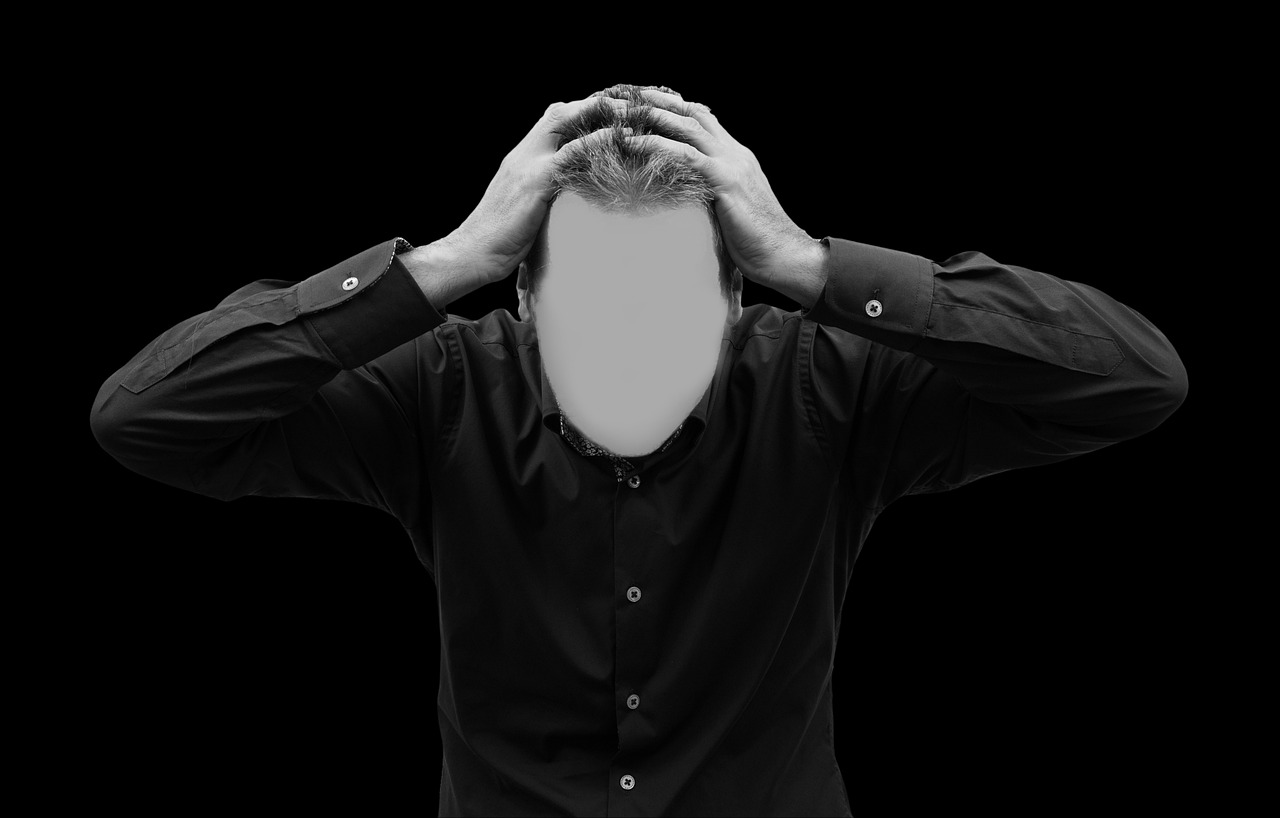
The Social Contract
Jean-Jacques Rousseau's concept of the social contract is not just a theoretical framework; it's a revolutionary idea that fundamentally reshaped our understanding of political authority and individual rights. Imagine a world where authority is not imposed from above, but rather, it emerges from a collective agreement among the people. This is the essence of Rousseau's social contract, which posits that individuals come together to form a society and agree to adhere to certain rules and principles for the greater good. In this arrangement, the state derives its legitimacy from the consent of the governed, creating a powerful shift from autocratic rule to a more democratic foundation.
Rousseau argued that in the state of nature, humans are free and equal, but as societies develop, inequalities arise, leading to oppression and loss of freedom. Thus, the social contract becomes a means of restoring that lost freedom while ensuring order and protection. This idea became a cornerstone of revolutionary ideology, inspiring the French revolutionaries to challenge the existing monarchical structures. They sought to establish a government that truly represented the will of the people, breaking free from the chains of tyranny.
To understand the significance of the social contract, it’s essential to recognize its key components:
- Mutual Agreement: The social contract is based on the premise that individuals voluntarily agree to form a society and abide by its rules.
- Collective Sovereignty: The authority of the state is derived from the collective will of the people, rather than from divine right or hereditary privilege.
- Protection of Rights: The social contract aims to protect the rights and freedoms of individuals, ensuring that the government serves its citizens rather than oppressing them.
This revolutionary shift in thought laid the groundwork for modern political philosophy and inspired countless movements for reform and revolution around the world. Rousseau's ideas echoed in the hearts of those who yearned for change, providing a philosophical justification for the radical transformations that would soon unfold in France. The social contract became a rallying cry for those who believed that a government should be accountable to its people and that true freedom could only be achieved through collective governance.
As the French Revolution progressed, the principles of the social contract continued to resonate, leading to debates about the nature of citizenship, governance, and individual rights. Revolutionary leaders began to grapple with the implications of Rousseau's ideas, questioning how to balance the needs of the community with the rights of the individual. This tension remains relevant today, as societies strive to find that delicate equilibrium between freedom and order.
In conclusion, Rousseau's social contract was not merely an abstract concept; it was a powerful catalyst for change. It encouraged people to envision a society where they could collectively determine their fate, paving the way for the radical transformations that characterized the French Revolution. The echoes of Rousseau's philosophy can still be heard in contemporary discussions about democracy, governance, and the role of the individual in society.

The General Will
Rousseau's concept of the general will is a cornerstone of his philosophical framework, and it profoundly influenced the ideals that fueled the French Revolution. At its core, the general will represents the collective interests of the people, transcending individual desires and personal ambitions. This idea was revolutionary in its own right, as it challenged the traditional notion of governance, which often prioritized the whims of monarchs and elites. Instead, Rousseau proposed that true legitimacy in governance arises when decisions reflect the common good of the community.
To understand the general will, it's essential to recognize that it isn't merely a sum of individual preferences. Rather, it embodies a shared vision for society, where the welfare of the collective takes precedence. In this sense, the general will can be seen as a guiding compass for democratic governance, urging citizens to engage in active participation. Rousseau believed that when individuals come together to deliberate and decide on matters affecting their lives, they create a stronger, more unified community. This notion inspired revolutionary leaders to envision a society where every citizen had a voice and a stake in the political process.
When Rousseau speaks of the general will, he emphasizes the importance of collective decision-making. It is not enough for individuals to simply vote or express their opinions; they must engage in dialogue and seek consensus for the greater good. This process of collective reasoning can be challenging, as it requires individuals to sometimes set aside their personal interests. However, Rousseau believed that this struggle is essential for achieving a just society. The general will is not static; it evolves as the community grows and changes, reflecting the dynamic nature of human relationships.
The implications of the general will for modern democracy are profound. Rousseau's philosophy suggests that legitimate authority must arise from the people's collective will rather than being imposed by monarchs or tyrants. This idea laid the groundwork for the democratic principles that emerged during the revolution, advocating for a government that is truly representative of its citizens. In essence, Rousseau's vision of democracy is one where the government is a reflection of the people's desires, aspirations, and needs.
While Rousseau's general will promotes unity and collective action, it also presents significant challenges. One of the most pressing issues is the difficulty of discerning the true collective interest. As individuals come together, differing opinions and perspectives can lead to conflicts. This raises the potential for what Rousseau termed "majority tyranny," where the majority may impose its will on minorities, undermining the very ideals of freedom and equality that the revolution sought to establish. Thus, while the general will serves as a powerful tool for social cohesion, it also necessitates vigilance and a commitment to protect the rights of all citizens.
Key figures of the French Revolution, such as Maximilien Robespierre, drew heavily from Rousseau's philosophy. They used his ideas to justify radical changes and the establishment of a republic that prioritized the general will. Robespierre, in particular, saw himself as a champion of the people's voice, advocating for policies that reflected Rousseau's vision. This alignment with Rousseau's principles provided a philosophical foundation for the revolutionaries, motivating them to pursue a society that was more equitable and just.
- What is the general will according to Rousseau?
The general will is the collective interest of the community that transcends individual desires, serving as the foundation for legitimate governance. - How did Rousseau's ideas influence the French Revolution?
Rousseau's concepts of the social contract and general will inspired revolutionary leaders to advocate for a government that represents the collective interests of the people. - What are the challenges of implementing the general will?
Discerning the true collective interest can lead to conflicts and the risk of majority tyranny, where the majority imposes its will on the minority.
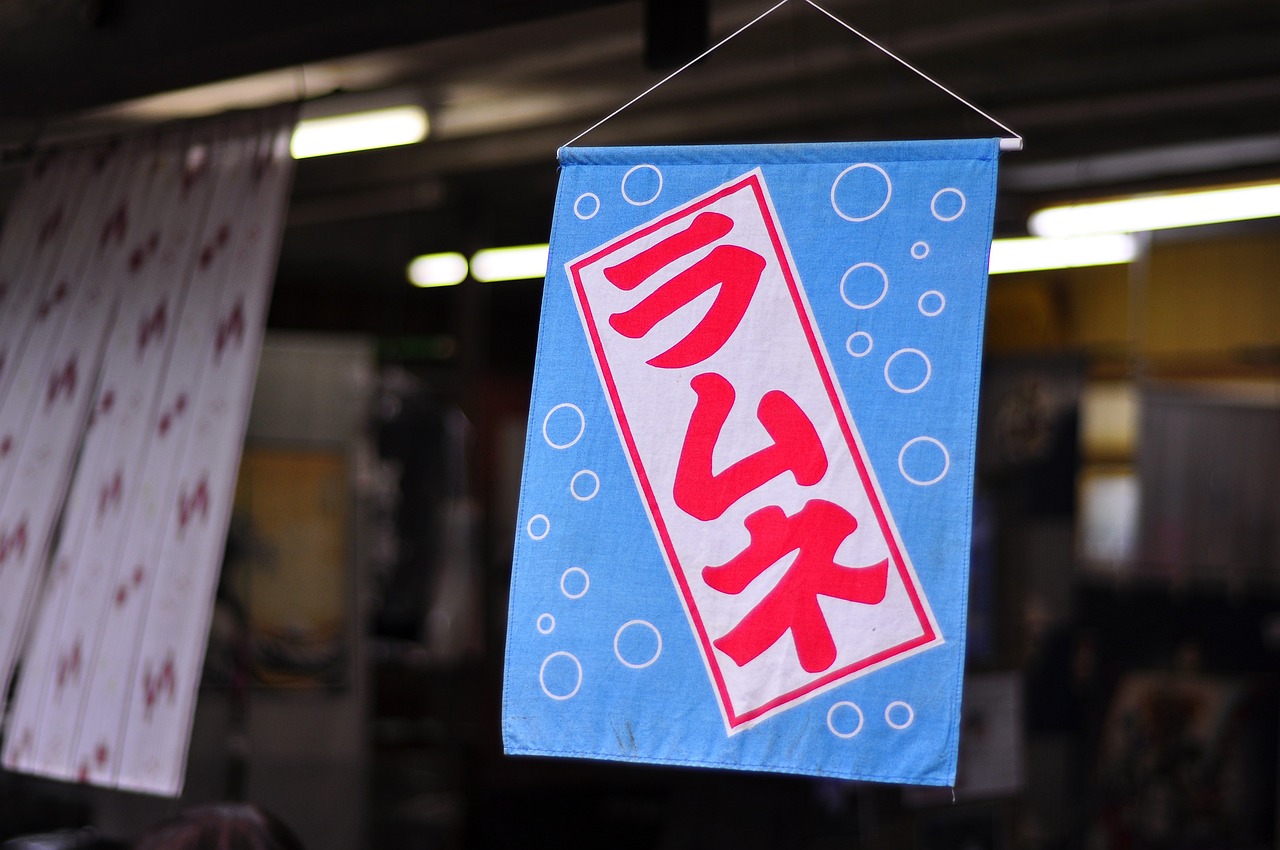
Defining the General Will
Rousseau's concept of the general will is both profound and multifaceted, serving as a cornerstone of his political philosophy. At its core, the general will represents the collective interest of the community, transcending individual desires and personal agendas. Imagine a vast orchestra, where each musician plays their part; the general will is akin to the conductor, harmonizing the diverse sounds into a single, cohesive melody that reflects the true essence of the community. This idea challenges us to think beyond our own immediate needs and consider what is best for the society as a whole.
In Rousseau's view, the general will is not merely the sum of individual wills; rather, it is a distinct entity that emerges when individuals come together to deliberate and decide collectively. This process of collective decision-making is crucial, as it ensures that the voices of all community members are heard and that the resulting decisions reflect a consensus rather than the whims of a few. For Rousseau, the general will is inherently just, as it seeks the common good and aims to promote the welfare of all citizens. However, this raises an important question: how do we discern what the general will truly is?
To navigate this complexity, Rousseau proposed that citizens must engage actively in the political process, participating in discussions and debates that shape their society. This active engagement is vital because it helps to cultivate a sense of community and shared responsibility. When individuals are involved in governance, they are more likely to prioritize the collective good over their self-interests. Thus, the general will is not a static concept but a dynamic one that evolves through the collective efforts of the populace.
However, the pursuit of the general will is not without its challenges. Discerning the true collective interest can lead to conflicts, as differing opinions and perspectives may clash. Rousseau recognized that the potential for majority tyranny exists, where the majority might impose its will on the minority, undermining the very principles of freedom and equality that the revolution sought to establish. Therefore, it is essential to strike a balance between the general will and individual rights, ensuring that the voices of all citizens are respected and that the quest for the common good does not come at the expense of personal liberties.
In summary, Rousseau's definition of the general will is a powerful reminder of the importance of collective decision-making and the need for active participation in governance. By prioritizing the common good, we can create a society that reflects the true interests of its members, fostering a sense of unity and shared purpose. Yet, we must remain vigilant to ensure that the pursuit of the general will does not lead to the marginalization of individual rights, striking a delicate balance between the two.
- What is the general will? The general will is the collective interest of the community that transcends individual desires and aims for the common good.
- How does Rousseau's general will differ from individual will? The general will is not merely the sum of individual wills; it represents a distinct entity that emerges from collective decision-making.
- What challenges does the general will present? Discerning the true collective interest can lead to conflicts and the potential for majority tyranny, where the majority imposes its will on the minority.
- Why is active participation important in governance? Active participation ensures that the voices of all community members are heard, fostering a sense of community and shared responsibility.

Implications for Democracy
Rousseau's concept of the general will has profound implications for democracy, fundamentally reshaping how we perceive governance and authority. At its core, the general will posits that legitimate political power must stem from the collective will of the people rather than from a monarch or a ruling elite. This idea was revolutionary in its time, as it challenged the traditional notions of authority where kings ruled by divine right. Rousseau argued that true freedom is found in the adherence to laws that one has a hand in creating, thus promoting the idea that democracy should be participatory and inclusive.
Imagine a society where every citizen has a voice, where decisions are made not just for the few, but for the many. This vision inspired revolutionary leaders to advocate for a system where the government is accountable to the people. The implications of this are vast:
- Empowerment of Citizens: Rousseau's philosophy encourages active participation in governance, empowering citizens to take charge of their own destinies.
- Collective Responsibility: It fosters a sense of community and shared responsibility, as individuals recognize their roles in shaping the laws and policies that govern them.
- Legitimacy of Authority: The legitimacy of governmental authority is derived from the consent of the governed, which is a cornerstone of modern democratic systems.
However, the implications of the general will are not without their challenges. The idea promotes unity and collective action, yet it can also lead to the suppression of minority opinions. In the quest for a common good, the risk of majority tyranny looms large. This paradox is a significant point of discussion in democratic theory, as it raises questions about how to ensure that all voices are heard while still pursuing the collective interest.
In practice, this means that democracies must strive for a delicate balance between majority rule and the protection of individual rights. As we navigate the complexities of modern governance, Rousseau’s insights remind us that democracy is not a static concept, but rather a dynamic process that requires constant engagement and reflection. The challenge lies in ensuring that the general will truly reflects the diverse needs and desires of the populace, rather than merely echoing the loudest voices.
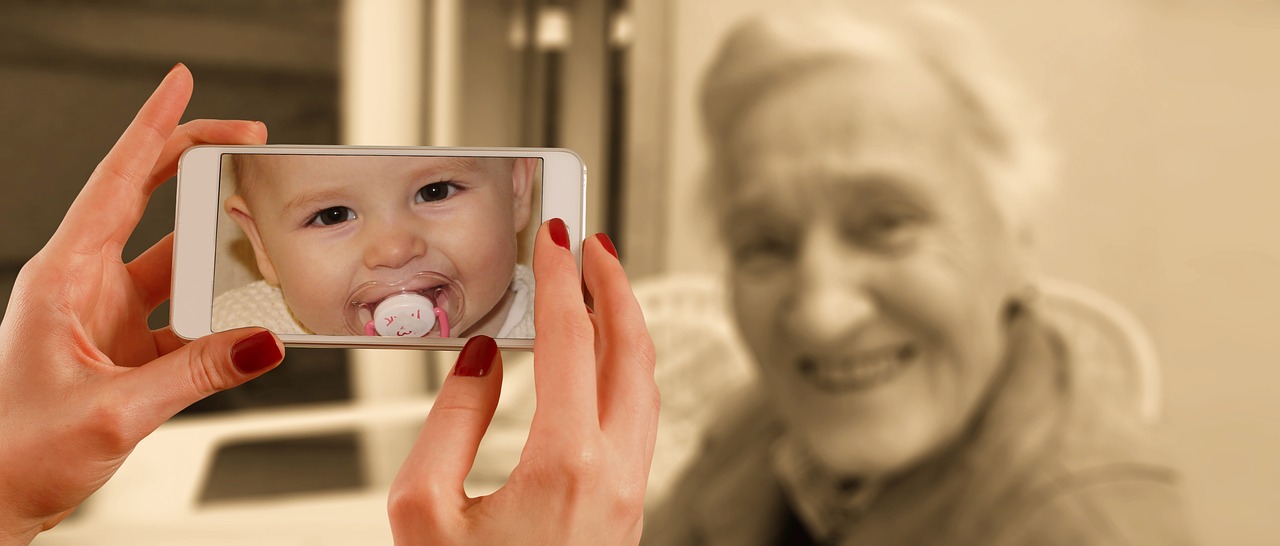
Challenges to the General Will
While Rousseau's concept of the general will is a powerful tool for promoting unity and collective decision-making, it is not without its challenges. One of the primary issues lies in the difficulty of accurately discerning what constitutes the true general will. In theory, the general will represents the collective interests of the populace, but in practice, this can be far more complicated. Who decides what the general will is? This question can lead to significant conflicts and disagreements among citizens, as individual opinions may diverge sharply from the perceived collective interest.
Moreover, the potential for majority tyranny becomes a pressing concern. When the general will is interpreted as the desires of the majority, there is a risk that the voices of minorities may be silenced or overlooked. This can lead to a situation where the rights and needs of certain groups are trampled underfoot in the name of the greater good. For instance, if a majority of citizens agree on a policy that adversely affects a minority group, the implementation of such a policy could be justified under the guise of the general will, which raises ethical questions about justice and equity.
Additionally, the challenge of manipulation comes into play. Revolutionary leaders and political figures may exploit the concept of the general will to further their own agendas. By claiming to represent the collective interest, they might sway public opinion and enact policies that serve their personal or political goals rather than the true needs of the community. This manipulation can distort the very essence of Rousseau's philosophy, transforming it from a tool for liberation into a weapon for oppression.
Lastly, the dynamic nature of society itself poses a challenge to the general will. As societal values, norms, and priorities evolve, what may have been considered the general will at one point can shift drastically over time. This fluidity necessitates ongoing dialogue and engagement among citizens to ensure that the general will remains relevant and representative of the current populace. In this context, fostering a culture of active participation and critical thinking becomes essential to uphold the integrity of the general will.
In summary, while Rousseau's idea of the general will is a cornerstone of democratic thought, its practical application is fraught with challenges. The potential for majority tyranny, manipulation by leaders, and the evolving nature of societal values all pose significant hurdles that must be navigated to ensure that the general will truly reflects the collective interest of the community.
- What is the general will according to Rousseau?
The general will is the collective interest of the people, representing what is best for the community as a whole, rather than individual desires. - How can the general will lead to majority tyranny?
If the general will is interpreted solely as the preferences of the majority, it can result in the oppression of minority groups whose needs are overlooked. - What are some practical challenges of implementing the general will?
Challenges include discerning the true general will, potential manipulation by leaders, and the dynamic nature of societal values that can shift over time.

Rousseau's Influence on Revolutionary Leaders
Jean-Jacques Rousseau's philosophy did not just float in the ether of intellectual circles; it ignited the passions of revolutionary leaders who sought to reshape society. Figures like Maximilien Robespierre, Georges Danton, and Camille Desmoulins were deeply influenced by Rousseau’s ideas, using them as a framework to justify radical changes in France. They saw in his writings a clarion call for liberty, equality, and fraternity, which resonated with the masses yearning for change. Imagine the fervor of a crowd, echoing Rousseau’s principles as they stormed the Bastille, believing that they were not just fighting for themselves, but for the very essence of the general will.
One of the most profound impacts of Rousseau's thought was the idea of the general will, which revolutionary leaders interpreted as a mandate to act on behalf of the collective interest of the people. This concept became a rallying cry, empowering leaders to claim legitimacy in their actions. They believed that by aligning their policies with the general will, they were fulfilling the true desires of the populace. However, this also led to a paradox where the interpretation of the general will could justify extreme measures, including violence against those deemed as enemies of the revolution.
Robespierre, in particular, took Rousseau's ideas to heart. He famously declared, "The government in a revolution is the despotism of liberty against tyranny." This statement encapsulated his belief that the revolution was not merely a political upheaval but a moral crusade. He viewed himself as the embodiment of the general will, a guardian of the revolutionary ideals that Rousseau espoused. Yet, this self-righteousness often spiraled into the Reign of Terror, showcasing the delicate balance between the pursuit of collective good and the potential for tyranny in the name of that good.
The revolutionary leaders also grappled with Rousseau's notion of individual freedom. While they were inspired by his advocacy for personal liberty, they faced the challenge of reconciling this with the need for social order. The revolution was, after all, a tumultuous time where the ideals of freedom often clashed with the realities of governance. As leaders sought to establish a new social order, they had to ask themselves: how do we ensure freedom for the individual while maintaining the cohesion of society? This tension is evident in the debates and decisions made during the revolutionary period, where Rousseau's influence loomed large.
Ultimately, Rousseau's impact on revolutionary leaders was a double-edged sword. On one hand, his ideas inspired a movement that sought to liberate individuals from the shackles of tyranny; on the other, they provided a justification for actions that led to widespread violence and oppression. This complexity is what makes Rousseau's philosophy so compelling and relevant even today. The lessons learned from the French Revolution remind us that the pursuit of the common good must always be balanced with the protection of individual rights, a theme that continues to resonate in contemporary political discourse.
- What is the social contract according to Rousseau? Rousseau's social contract is an agreement among individuals to form a collective society, emphasizing the rights and responsibilities of citizens towards the state.
- How did Rousseau influence the idea of democracy? Rousseau's concept of the general will laid the groundwork for democratic principles, asserting that legitimate authority comes from the collective will of the people.
- What challenges did Rousseau's ideas present during the French Revolution? While promoting unity, Rousseau's ideas also led to conflicts over what constituted the general will, sometimes resulting in the oppression of minority views.
- Who were some key figures influenced by Rousseau? Key figures include Maximilien Robespierre, Georges Danton, and Camille Desmoulins, who utilized Rousseau's ideas to justify their revolutionary actions.
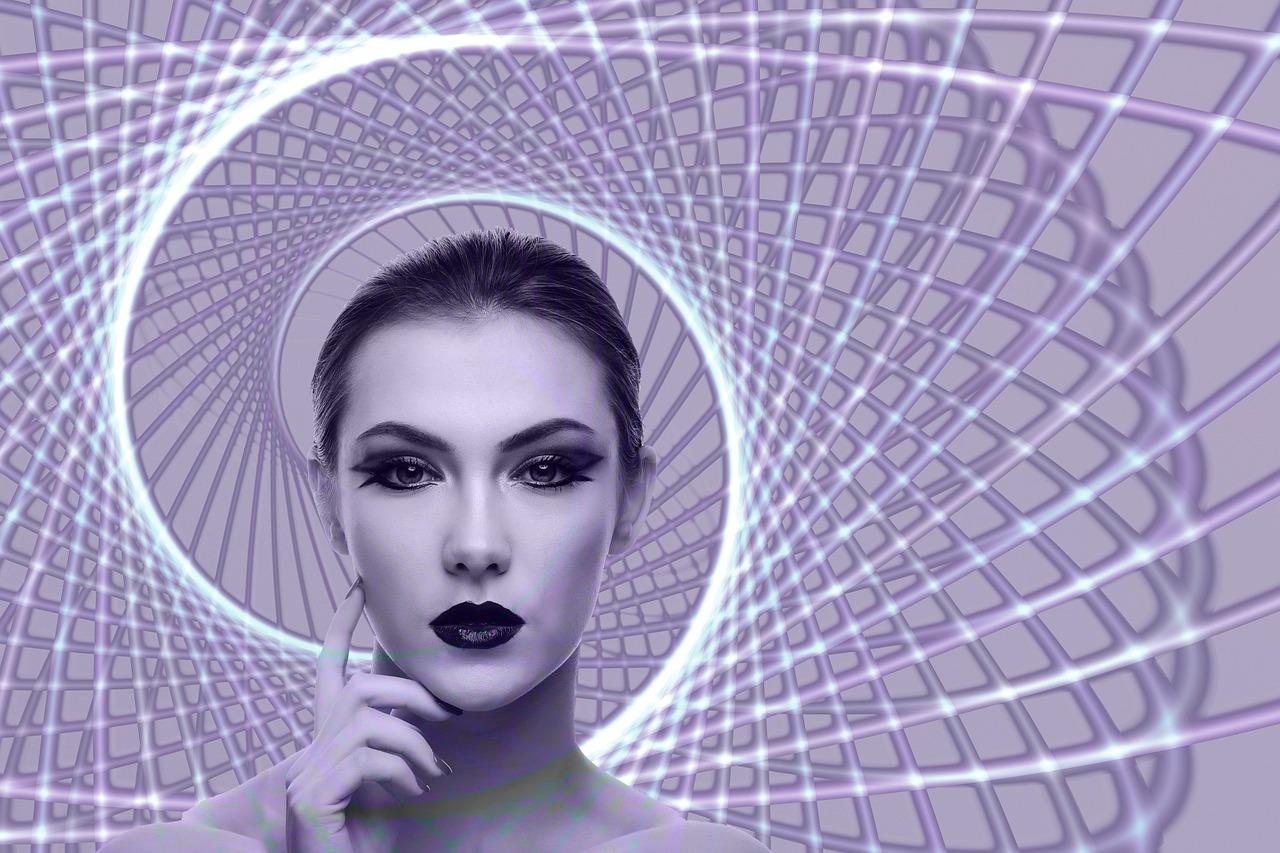
Individual Freedom and Autonomy
When you think about the French Revolution, what comes to mind? Images of passionate citizens storming the Bastille, right? But beneath that fervor lies a profound philosophical underpinning, primarily driven by the ideas of Jean-Jacques Rousseau. His emphasis on individual freedom and autonomy resonated deeply with the revolutionaries, sparking a belief that every person had an inherent right to self-determination. Rousseau argued that true freedom is not merely the absence of restraint but the ability to act in accordance with one’s own will, which is a powerful notion when you consider the oppressive systems that many were fighting against.
Rousseau believed that individuals are born free, but society often chains them with rules and expectations. This idea fueled the revolutionary spirit, as people began to see themselves not just as subjects of a monarchy but as active participants in shaping their destinies. The revolutionaries, inspired by Rousseau, aimed to dismantle the old order and create a society where liberty and equality reigned supreme. They envisioned a world where the citizens could freely express their thoughts and participate in governance, breaking free from the shackles of tyranny.
However, this quest for freedom was not without its challenges. The revolutionaries faced a critical question: how do you balance individual freedom with the need for social order? Rousseau himself grappled with this dilemma, recognizing that too much freedom could lead to chaos, while too much control could stifle personal liberty. This paradox became a central theme during the revolution, as leaders sought to establish a government that upheld the rights of individuals while maintaining stability. The tension between personal autonomy and collective responsibility was palpable, as the revolutionaries navigated the murky waters of governance.
To illustrate this balance, consider the following table that outlines the key differences between individual freedom and social order:
| Individual Freedom | Social Order |
|---|---|
| Focuses on personal rights and liberties | Emphasizes rules and structure for society |
| Encourages self-expression and creativity | Promotes stability and predictability |
| Can lead to chaos if unchecked | Can suppress individuality if too rigid |
This dynamic interplay between freedom and order was essential to the revolutionary discourse. Rousseau’s ideas urged revolutionaries to advocate for a system that not only recognized individual rights but also fostered a sense of community and shared responsibility. They sought to create a society where citizens could enjoy their freedoms while contributing to the greater good, a concept that would shape the future of democratic governance.
Ultimately, the influence of Rousseau’s philosophy on the French Revolution cannot be overstated. His vision of individual autonomy inspired a generation to challenge the status quo and fight for a world where freedom was not just a privilege for the elite but a right for all. As the revolution unfolded, the echoes of Rousseau’s thoughts reverberated through the streets of Paris, igniting a flame of change that would alter the course of history.
- What is the main idea of Rousseau's philosophy on freedom?
Rousseau believed that true freedom is acting in accordance with one's own will, and that individuals should have the right to self-determination. - How did Rousseau influence the French Revolution?
His ideas about individual freedom and the social contract inspired revolutionaries to fight against oppressive systems and advocate for civil rights. - What challenges did the revolutionaries face regarding freedom and order?
They struggled to balance the need for individual freedoms with the necessity of maintaining social order, a tension that remains relevant today.
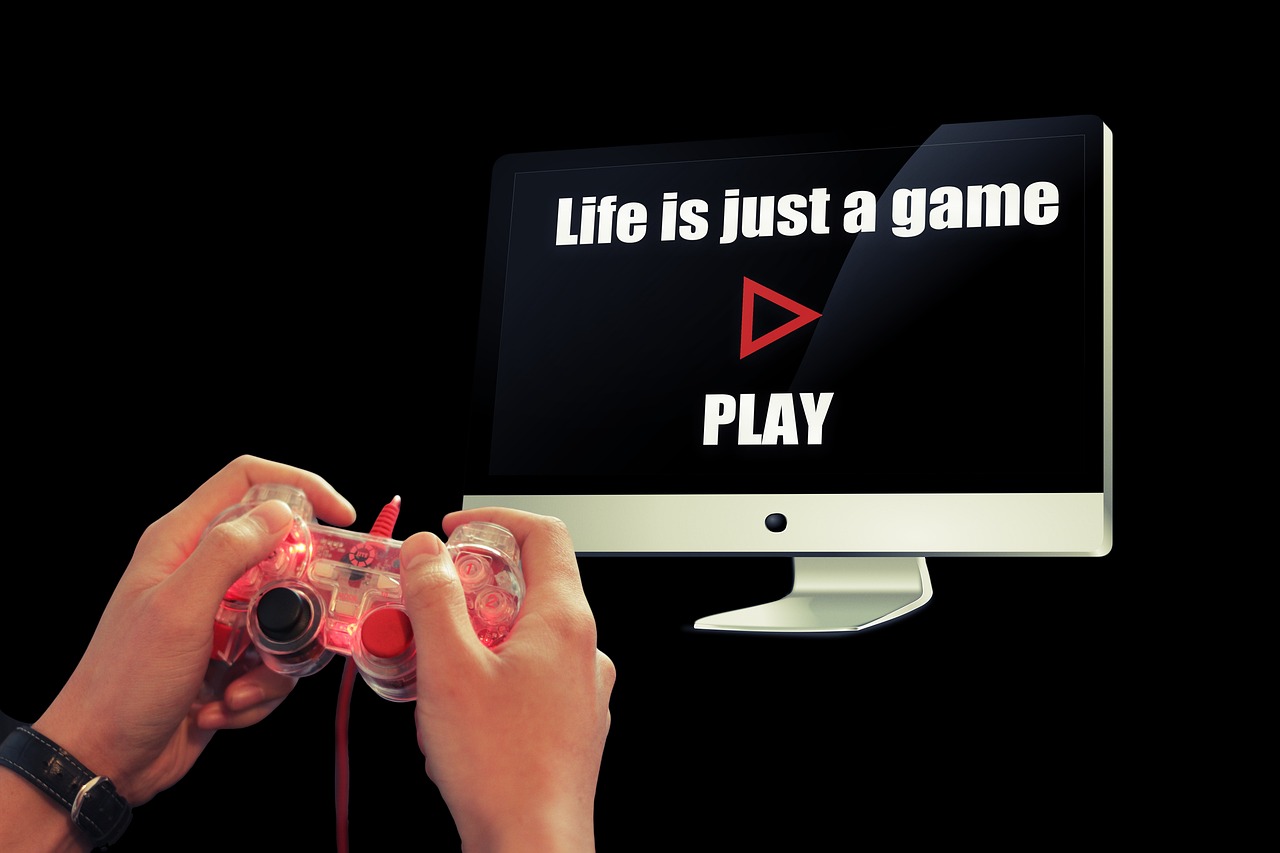
Rousseau's View on Freedom
When we dive into Jean-Jacques Rousseau's philosophy, one of the most striking elements is his profound understanding of freedom. He didn’t just see freedom as a mere absence of restraint; instead, he envisioned it as a vital component of humanity's essence. Rousseau believed that true freedom is found in the ability to act according to one's own will, but this comes with a twist—he argued that our freedom is deeply intertwined with the collective will of the community. Imagine a tightly woven tapestry; each thread represents an individual, yet the beauty of the tapestry lies in how those threads come together to create a unified design. This analogy perfectly encapsulates Rousseau's belief that individual freedom is not just about personal autonomy but also about contributing to the greater good.
Rousseau famously declared, “Man is born free, and everywhere he is in chains.” This powerful statement highlights his view that societal structures often inhibit our natural state of freedom. He argued that while we are born with the right to be free, various institutions—like governments and social hierarchies—can impose restrictions that distort our true nature. For Rousseau, achieving freedom required a radical transformation of society itself. He proposed that individuals should enter into a social contract where they collectively agree to form a society that respects and promotes individual liberties while ensuring the welfare of all.
Now, let’s break down Rousseau’s perspective on freedom into a few key points:
- Personal Liberty: Rousseau emphasized the importance of personal liberty, arguing that individuals should have the right to make choices that align with their true selves.
- Collective Responsibility: He believed that with freedom comes responsibility. Individuals must consider the impact of their actions on the community, fostering a balance between personal desires and communal welfare.
- Freedom Through Equality: Rousseau posited that true freedom cannot exist in a society rife with inequality. He argued that economic and social inequalities lead to oppression, which stifles individual freedom.
In essence, Rousseau's view on freedom is not just a philosophical abstraction; it is a call to action for individuals to reclaim their autonomy while recognizing their interconnectedness with others. This idea resonated deeply during the French Revolution, where revolutionaries were inspired to strive for a society that honored both individual rights and collective well-being. They sought to dismantle the chains of oppression and replace them with a framework that allowed for both personal freedom and social responsibility.
Rousseau's thoughts on freedom continue to spark debates today. How do we balance the individual's right to freedom with the needs of the community? Can true freedom exist in a society marked by inequality? These questions remind us that Rousseau’s philosophy is not just a relic of the past but a relevant discourse that challenges us to reflect on our own values and the structures that govern our lives.
- What is Rousseau's definition of freedom? Rousseau defines freedom as the ability to act according to one's own will while considering the collective will of the community.
- How did Rousseau influence the French Revolution? His ideas on the social contract and individual freedom inspired revolutionaries to fight against tyranny and advocate for civil rights.
- What challenges does Rousseau's view of freedom present? Balancing individual freedom with social responsibility can lead to conflicts, especially when determining the collective interest of the community.
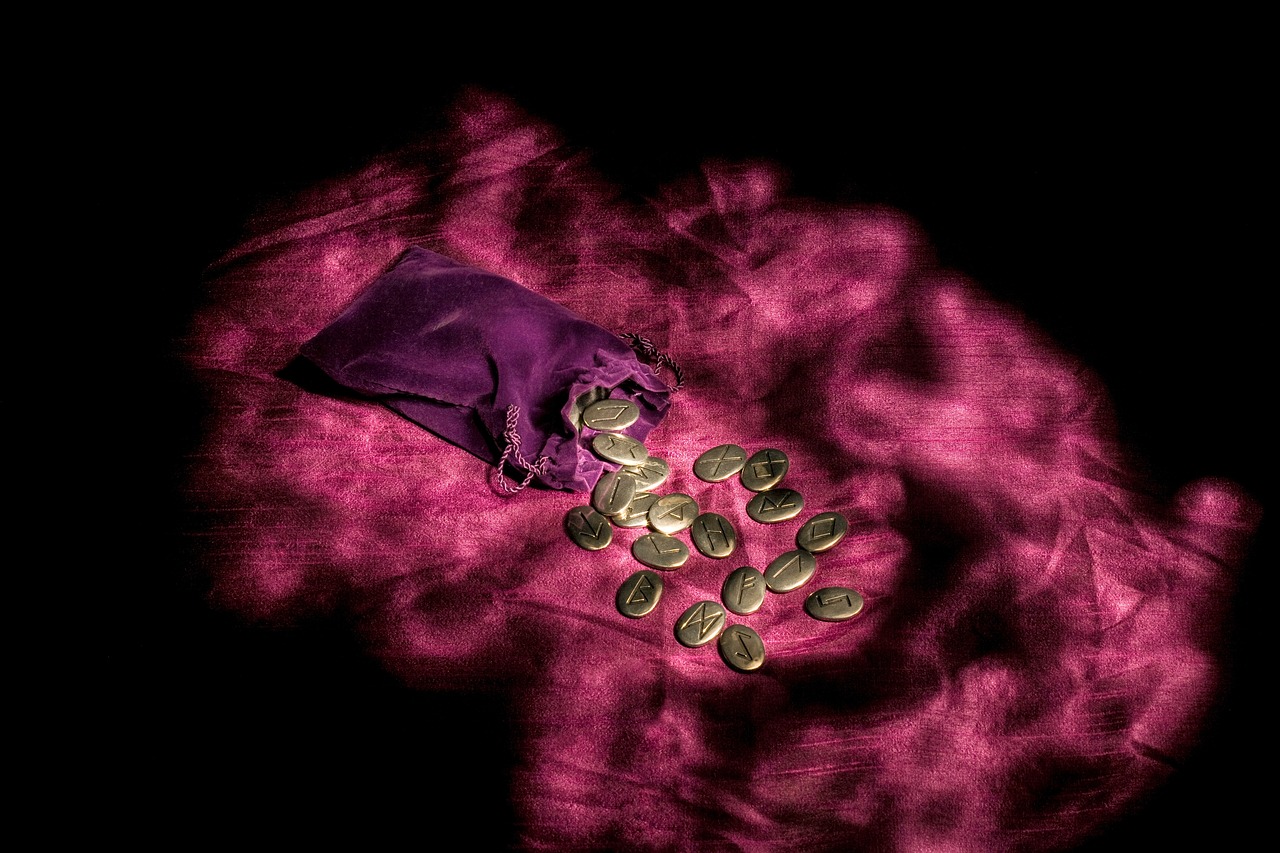
Balancing Freedom and Order
The French Revolution was a tumultuous period, marked by a fervent desire for freedom and a simultaneous struggle to maintain order. At the heart of this conflict lies Rousseau's philosophy, which emphasizes the delicate balance between individual liberty and the collective good. Imagine a seesaw: on one side, you have the weight of personal freedoms, and on the other, the necessity of societal structure. The challenge was to find equilibrium, ensuring that neither side tipped too far, leading to chaos or oppression.
Rousseau believed that true freedom is not merely the absence of restraint but rather the ability to act in accordance with the general will. This notion is crucial because it suggests that freedom is best realized within a framework of laws and social agreements that promote the common good. During the revolution, leaders grappled with this idea, often asking themselves: how can we ensure that the rights of individuals are respected while also fostering a stable society?
As revolutionary fervor grew, the tension between freedom and order became increasingly evident. On one hand, the revolutionaries sought to dismantle the oppressive structures of the monarchy, which they viewed as a barrier to individual rights. On the other hand, they recognized that without some form of governance, society could descend into anarchy. This paradox led to intense debates among revolutionary leaders, as they navigated the complexities of establishing a new political order.
To illustrate this struggle, consider the following table that outlines key events during the revolution that exemplified the balancing act between freedom and order:
| Event | Freedom Aspect | Order Aspect |
|---|---|---|
| Storming of the Bastille | Symbol of liberation from tyranny | Need for control over the chaos |
| Declaration of the Rights of Man and of the Citizen | Affirmation of individual rights | Framework for societal laws |
| Reign of Terror | Suppression of dissent | Efforts to maintain revolutionary order |
This table highlights how revolutionary leaders often found themselves in a tug of war between the ideals of freedom and the practical necessities of governance. The Reign of Terror, for instance, was a stark representation of how the quest for order led to the suppression of individual liberties, ultimately raising questions about the very principles they sought to uphold.
In conclusion, the challenge of balancing freedom and order during the French Revolution reflects Rousseau's enduring influence. His insights remind us that while the pursuit of liberty is noble, it must be tempered with a commitment to the collective well-being. This delicate balance remains a relevant discourse today, as societies continue to navigate the complexities of governance in the pursuit of freedom.
- What was Rousseau's main idea about freedom? Rousseau believed that true freedom is found in the ability to act according to the general will, which serves the common good.
- How did Rousseau influence the French Revolution? His ideas on the social contract and general will inspired revolutionary leaders to advocate for democracy and individual rights.
- What challenges did the revolutionaries face regarding freedom and order? They struggled to maintain individual freedoms while establishing a stable government, often leading to conflicts and compromises.
Frequently Asked Questions
- What is the social contract according to Rousseau?
The social contract is an agreement among individuals to form a collective society, where they agree to follow the general will for the common good. Rousseau believed that this contract is fundamental to establishing legitimate political authority, as it creates a bond between the state and its citizens.
- How did Rousseau's idea of the general will influence the French Revolution?
Rousseau's concept of the general will emphasized the importance of the collective interest over individual desires. This idea inspired revolutionary leaders to prioritize the common good, leading to a push for societal changes that reflected the will of the people rather than the whims of a monarch.
- What challenges does the general will pose?
While the general will promotes unity and collective decision-making, it can also lead to conflicts. Discerning the true collective interest can be complex, potentially resulting in majority tyranny, where the rights of minorities are overlooked in favor of the majority's desires.
- How did Rousseau influence key figures of the French Revolution?
Revolutionary leaders like Robespierre drew heavily from Rousseau's philosophy, using his ideas to justify radical changes. They embraced his vision of a republic founded on the principles of liberty, equality, and fraternity, which became central tenets of the revolution.
- What is Rousseau's perspective on individual freedom?
Rousseau viewed individual freedom as essential for personal and societal development. He believed that true freedom comes from self-determination and the ability to participate in governance, which resonated deeply with revolutionaries fighting against tyranny.
- How did the revolutionaries balance freedom and order?
The challenge of balancing individual freedom with social order was a significant issue during the revolution. Rousseau's ideas prompted discussions on how to maintain liberty while ensuring that society functions cohesively, highlighting the ongoing relevance of his philosophy in political discourse.


